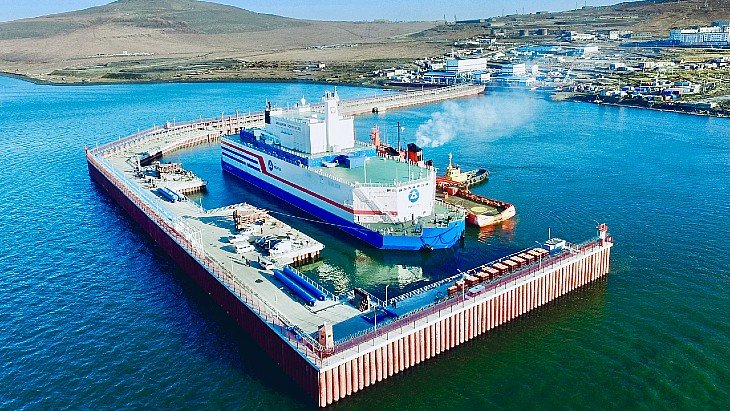Ghana, Russia Partner on Floating Nuclear Reactors for Energy Sector
Ghana and Russia have strengthened their bilateral relations with a new partnership focused on energy development through the introduction of a floating nuclear power plant. The project, spearheaded by Russia’s state nuclear corporation Rosatom, aims to boost Ghana’s electricity supply and support the country’s growing industrial and economic needs. Officials say the initiative will provide a reliable, low-carbon alternative to complement Ghana’s existing energy sources. The partnership marks a significant step in Ghana’s long-term energy strategy and underscores Russia’s expanding role in Africa’s energy sector.

Moscow/Accra – Ghana and Russia have agreed to strengthen cooperation in nuclear energy development, with a focus on deploying floating nuclear power plants to boost Ghana’s energy sector. The announcement followed high-level discussions at the just-ended international summit in Moscow, where energy and technology partnerships were a central theme.
The agreement paves the way for Ghana to explore the use of Russia’s advanced floating nuclear reactors — small, mobile power plants designed to provide stable electricity supply, particularly in coastal and energy-constrained regions. Officials say the initiative aims to diversify Ghana’s energy mix, reduce reliance on hydropower and thermal generation, and meet growing demand for reliable electricity.
Speaking at the summit, Ghanaian representatives highlighted the country’s ambition to transition into cleaner and more sustainable energy solutions. They emphasized that nuclear power remains a key component of Ghana’s long-term strategy for industrialization and energy security.
Russian state nuclear corporation Rosatom, which has been expanding its footprint in Africa, will provide technical expertise, training, and infrastructure support. The collaboration is expected to include feasibility studies, safety assessments, and potential pilot projects in Ghana’s coastal regions.
Analysts say floating nuclear plants could offer Ghana a faster and more flexible path to nuclear power compared to building large-scale land-based reactors, which require significant capital and time. However, experts also caution that safety, regulatory approval, and financing will be critical challenges to address before implementation.
This new partnership builds on earlier engagements between Accra and Moscow on peaceful nuclear energy cooperation, including training Ghanaian scientists and engineers in Russia.
Energy sector observers view the move as a sign of Ghana’s increasing interest in nuclear technology as it seeks to balance energy needs with climate goals, while Russia deepens strategic ties with African nations through technology and infrastructure projects.
If successfully implemented, Ghana would become one of the first countries in Africa to deploy floating nuclear reactors, marking a milestone in the continent’s pursuit of innovative energy solutions.
What's Your Reaction?



















